Russian media unhappy with Nato summit
- Published
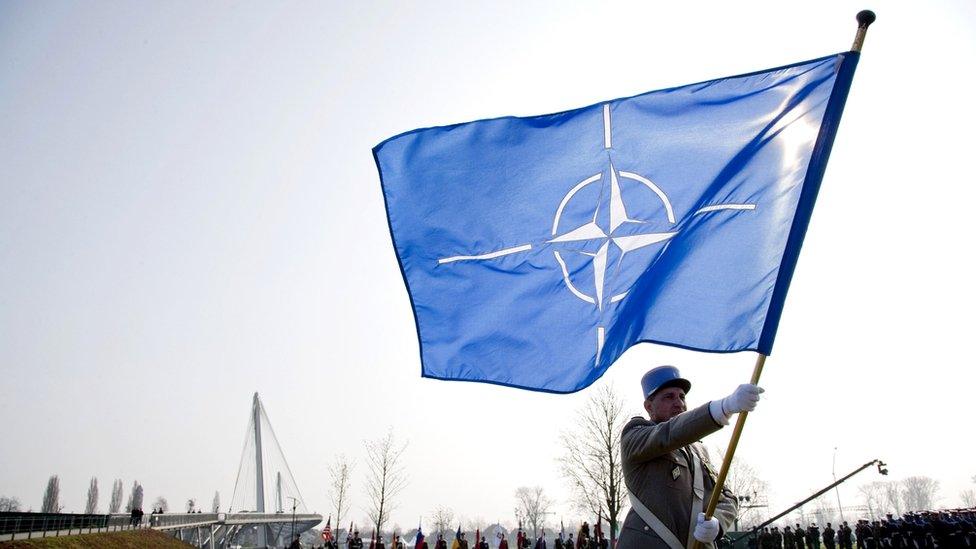
The summit comes at a time of increasing tensions between Russia and Nato
Russian newspapers have reacted to the Nato summit in Warsaw with a mixture of suspicion and outright hostility.
However, in Eastern Europe there is a sense of optimism, tempered by the feeling that Nato could do more, following the announcement that the UK has announced that it will deploy troops to Poland and Estonia.
Elsewhere in Europe, commentators speculate on the impact that Brexit may have on the Nato alliance.
'Anti-Russian agenda?'
Nato officials have been "preparing in a way they haven't done since the end of the Cold War", says Russia's Rossiyskaya Gazeta, external, while Trud daily, external declares that the summit is "the first in many years to have such an openly anti-Russian agenda".
Nezavisimaya Gazeta , externalwarns that Nato's moves "reflect its plans for further confrontation with Russia and eastward expansion", and threatens that any deployment of troops into Russian territory would not go unanswered. "Russia is working through scenarios where it will have to respond to such events with nuclear strikes on state and military administration centres of all Nato member states," it says.
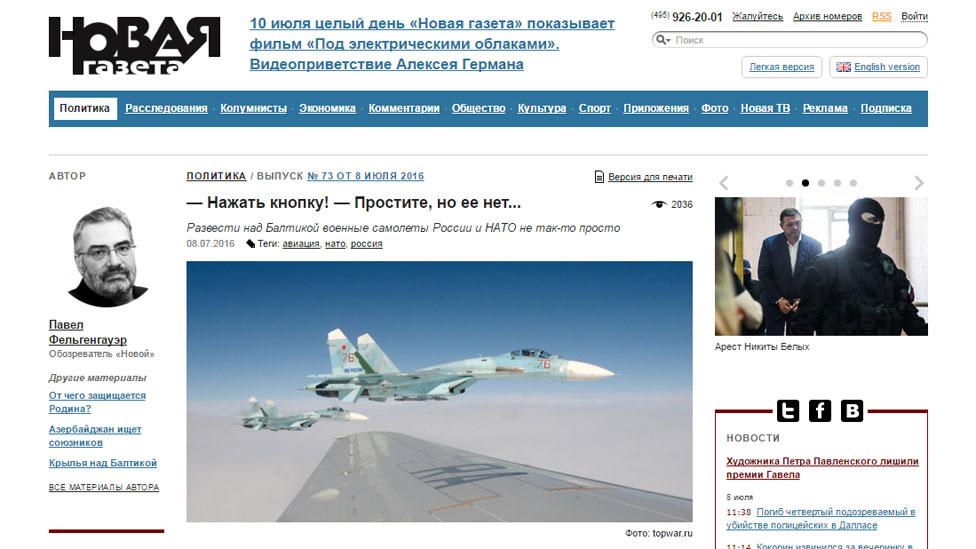
"Push the button! - Sorry there isn't one", declares Novaya Gazeta's article
But Moskovsky Komsomolets, external urges against confrontation, saying: "The best way to respond is not to be baited. A growth in geopolitical tension in Europe is not in Russia's interests."
In contrast to other newspapers, Novaya Gazeta, external sees little consequence in the summit or its outcomes. "They'll come together for a chat and go their separate ways," it says in an article entitled "Push the button! - Sorry there isn't one".
Nato protection
Polish media are generally upbeat on the prospects of the summit but with a sense that its expectations will not be met.
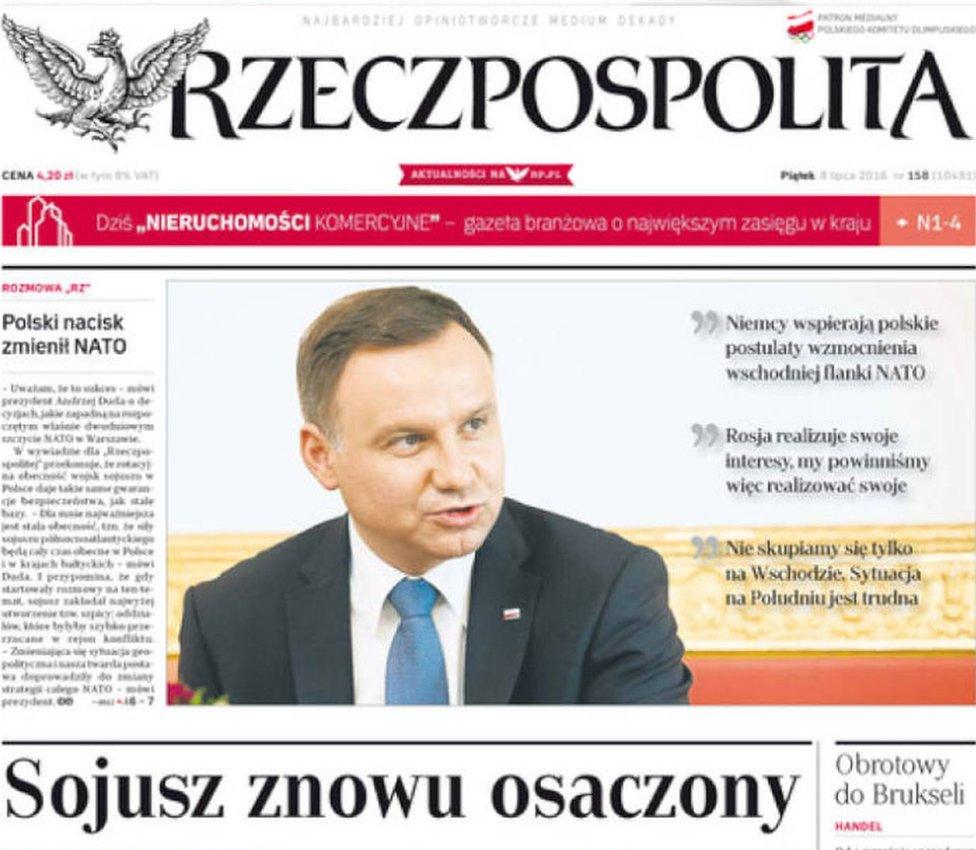
Polish newspaper Rzeczpospolita had hoped for more from the summit
Polish daily Rzeczpospolita, external says the summit offers "a little less than we dreamt of", referring to Polish hopes of an agreement to establish permanent Nato bases in the country rather than a process of rotational deployment of troops.
"Why can't Nato protect us?" echoes Romania's Digi 24, external, which predicts that "Russians will become more and more active in the power games in Romania".
In the Czech Republic there is a sense of unease about what is perceived as Russia's threat."Nato talks first and then waits to see what Moscow will do. Yet the Russians would overrun the Baltic countries in a few hours," says Czech daily Hospodarske noviny.
Another Czech daily, Lidove noviny, echoes this sentiment: "Concrete steps by Nato members lag behind the security situation. The Warsaw summit must affirm that all members are aware of the threat from the east and south, and are willing to do something about it."
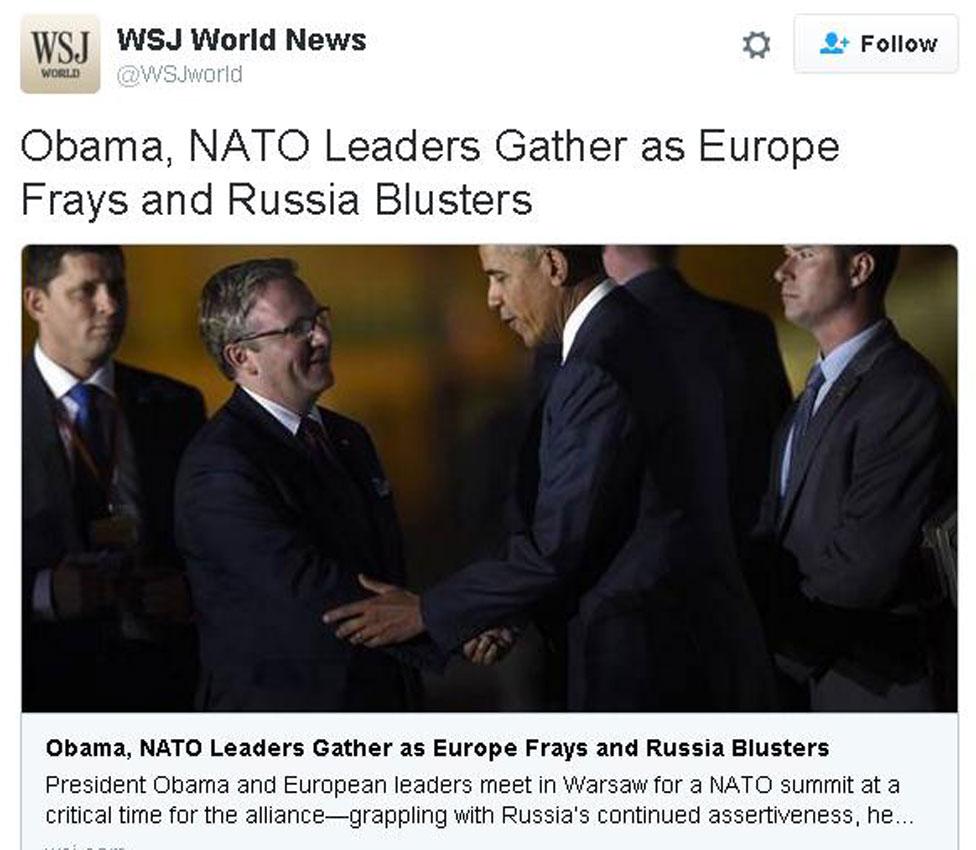
President Obama has said the summit comes at 'a critical moment' for Nato
Latvian daily Dienasays says the summit should not be viewed as a "miracle solution" to security issues in Eastern Europe. "We should not become hysterical if the USA does not fulfil all our desires in Eastern Europe, however substantiated they may be," it says.
But Polish broadsheet Gazeta Wyborcza, external is more optimistic, devoting a number of articles to perceived threats from Russia - and Nato measures to tackle them. The paper carries a quote from Defence Secretary Antoni Macierewicz saying: "After many decades, Poland can feel safe at last."
'Dangerous process'
In Germany's Zeit Online, external, German MP Gernot Erler urges his government to take the lead in defusing tensions with Moscow.
"Russia and the West are in a dangerous process of re-evaluation. It is therefore imperative that Germany seeks further dialogue with Putin," he says.
Brexit
French papers remain pre-occupied with the UK's vote to leave the EU. Under the headline "Nato after Brexit", Ouest-France, external says "[Prime Minister David] Cameron will of course seek to reassure his allies in Warsaw on the UK's Atlanticist faith. But leaving the EU blurs the message. It weakens the sense of unity that Europe needs to face multifaceted threats to its democracies."
Les Echos also describes the UK as "the indispensable ally" but fears that "the effects of Brexit" could have side effects for the Alliance.
BBC Monitoring reports and analyses news from TV, radio, web and print media around the world. You can follow BBC Monitoring on Twitter, external and Facebook, external.
- Published8 July 2016
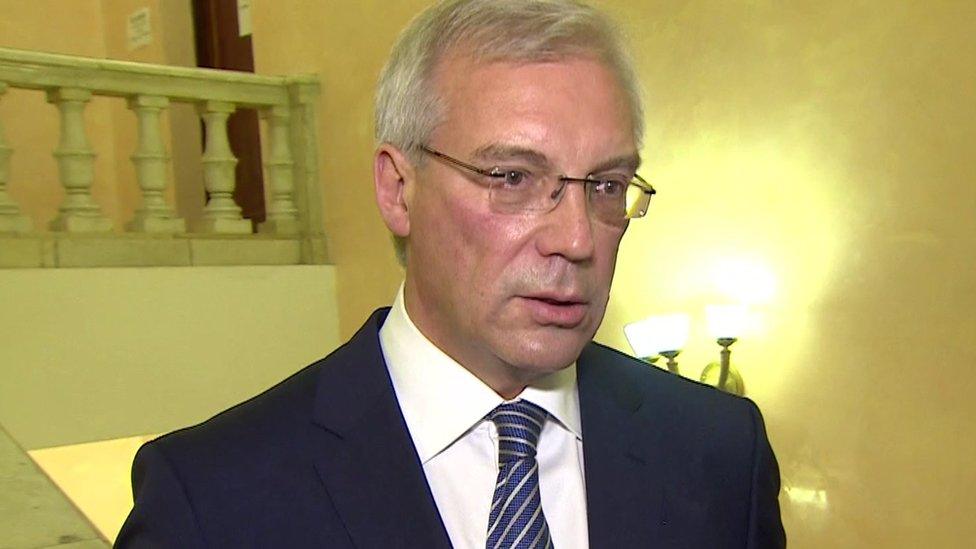
- Published7 July 2016
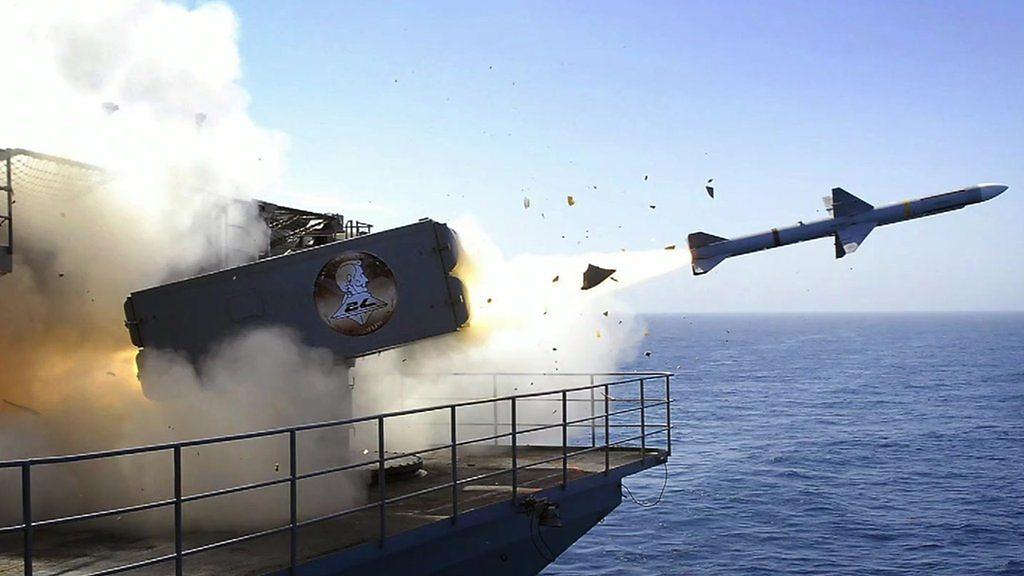
- Published20 June 2016
